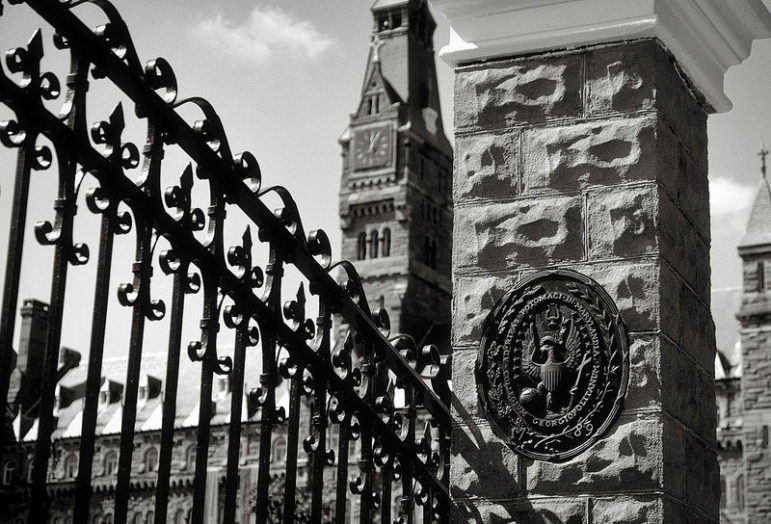
September 9, 2016; Washington Post
Last week, Georgetown University’s president, John DeGioia, announced a plan for the institution to apologize for the university’s complicity in the slave trade. Georgetown would name two buildings in honor of the slaves, and give admissions preference to descendants of the 272 slaves sold by Jesuits in the 19th century to pay down the school’s debts. However, GU272, a group of 600 descendants of those slaves, has thoughts of its own. Their proposal has greater vision and a significantly higher price tag: a $1 billion foundation.
This group, which counts Joseph Stewart, the former chair of the W.K. Kellogg Foundation board, as one of its organizers, has raised $115,000 in seed money—the sale price of their family members in 1838. They do not expect GU to foot the whole bill, however; instead, they envision the entity as a place where multiple colleges and universities could contribute from a soiled past to a different future.
The GU272 statement said the descendants asked to be included in the panel that studied the issue, but they were not.
“We appreciate the gestures of a proposed memorial to our enslaved ancestors on Georgetown’s campus and [presidential] visits with some descendants, but recommendations developed without the meaningful participation of descendants can only be seen as preliminary,” observed Sandra Green Thomas, a descendant who helped develop the idea for the foundation.
“We viewed this as a prime opportunity for an institution that profited from slavery to join with the descendants of those enslaved to create a model for healing and redress in our nation,” said Stewart. “Yet we firmly believe in the old saying, ‘Nothing about us, without us.’”
Stewart says the group wants the foundation to be a national leader on the issue of racial truth and reconciliation.
Sign up for our free newsletters
Subscribe to NPQ's newsletters to have our top stories delivered directly to your inbox.
By signing up, you agree to our privacy policy and terms of use, and to receive messages from NPQ and our partners.
“The foundation can only be a reality if we can establish a partnership with Georgetown University,” he said.
The foundation is our vision of an opportunity for us to have a partnership with Georgetown University that can take the history that we all now know about and turn it into a greater common good for Georgetown, the Jesuits, the Catholic Church, and humans overall.
Our vision is not about reparations. It’s not about getting anything that just benefits descendants. It’s about having an opportunity to have a common good.
Stewart did have praise for the university, however.
What Georgetown did was step out and away on an issue that has just dragged our whole country and society backward. They have stepped out in front and said, “We need to openly deal with this.” I want to commend them for that. But we want to work with them on a greater vision that’s not dependent on the day-to-day educational mission of Georgetown, a separate foundation that we all have a role in. […] We can take that, use it in a positive way to do much better for all of God’s wonderful humanity.
—Ruth McCambridge













